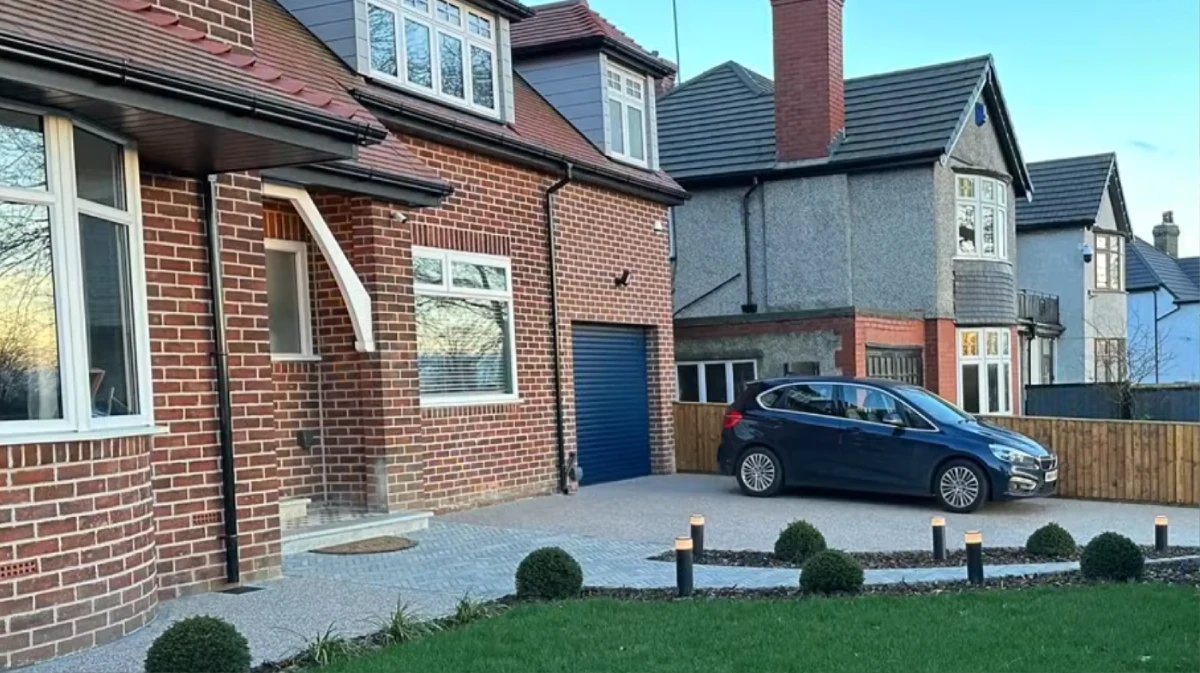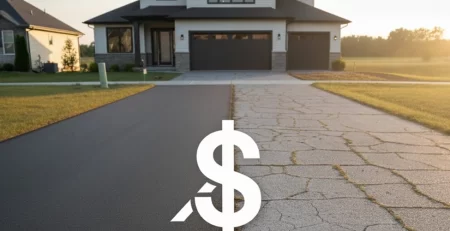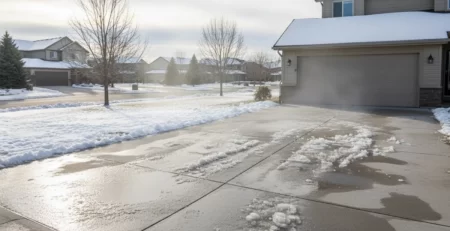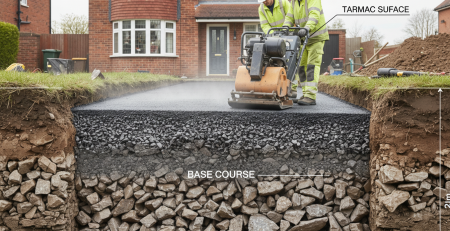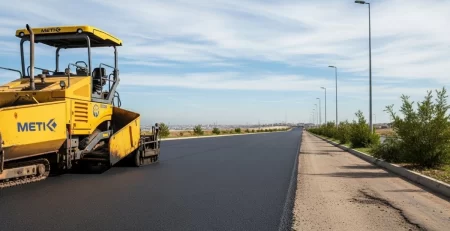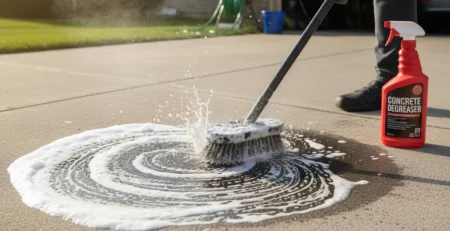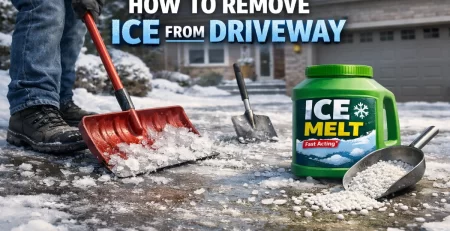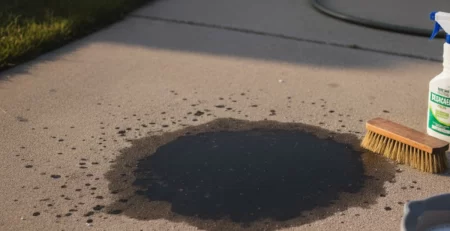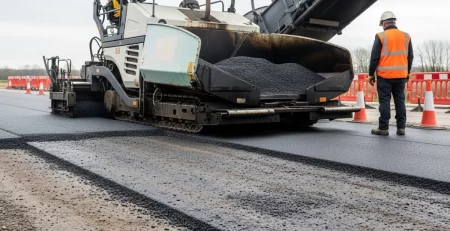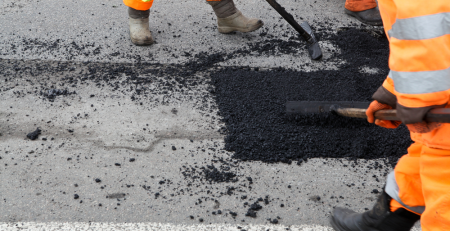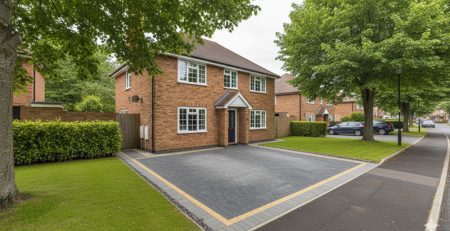Do Weeds Grow Through Resin Driveways? Things to Know
Resin driveways have revolutionized UK home surfaces with a stunning, weed-resistant solution that eliminates constant maintenance headaches.
Do weeds grow through resin driveways? The answer is refreshingly simple: properly installed resin surfaces create an impermeable barrier that prevents weed penetration from below.
This game-changing technology transforms how British homeowners approach driveway maintenance, offering decades of pristine appearance without the endless cycle of weeding and re-treatment.
You’ll discover why professional installation makes all the difference, learn the science behind resin’s superior weed resistance, and uncover maintenance secrets that keep surfaces looking flawless year-round.
Why Weeds Usually Don’t Grow Through Resin Driveways?
Understanding the science behind weed resistance helps explain why resin surfacing outperforms traditional driveway materials.
The Impermeable Surface Design
Resin-bound surfaces create a completely sealed layer that prevents weed penetration from below. The resin and aggregate mixture forms a solid, continuous surface with no gaps or joints where weeds can establish themselves.
Unlike block paving with mortar joints or loose gravel systems, resin driveways eliminate the pathways that weeds typically exploit to reach the surface.
The installation process involves mixing natural aggregates with clear polyurethane resin, creating a homogeneous surface that bonds entirely to the prepared sub-base.
This seamless construction means there are no weak points where vegetation can push through from the underlying soil.
Water Drainage Properties
The post-resurfacing road maintenance requirements for resin systems are minimal due to their superior drainage capabilities. While the surface prevents weed growth from below, it simultaneously allows water to permeate through efficiently.
This permeability serves a dual purpose: excess water drains away quickly without pooling, while the lack of standing water prevents surface seeds from receiving the moisture needed for germination. The rapid drainage also helps prevent the accumulation of organic matter that could support weed growth.
Superior Base Preparation
Professional surfacing contractors in the UK ensure proper sub-base preparation, which is crucial for long-term weed resistance. The installation process includes comprehensive weed treatment of the existing surface and the application of appropriate membrane systems where necessary.
This thorough preparation eliminates existing vegetation and creates an inhospitable environment for future weed growth. The compacted base layer provides additional protection against plant penetration from underlying soil layers.
When Weeds Might Appear on Resin Surfaces?
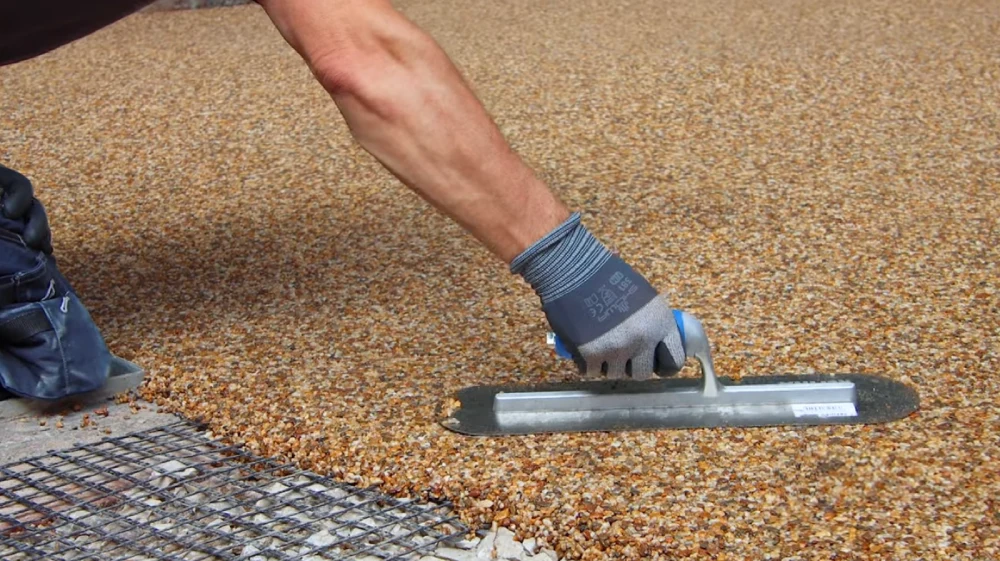
Despite their excellent resistance properties, certain circumstances can lead to limited weed presence on resin surfaces.
Surface Seedling Growth
Wind-blown seeds occasionally land on resin driveways and may briefly germinate on the surface. However, these seedlings cannot establish deep root systems due to the solid resin layer beneath.
The lack of adequate water retention and the absence of soil contact mean these surface weeds remain weak and are easily removed. Most seedlings naturally die off without intervention due to insufficient growing conditions.
Moss and Algae Development
In particularly damp, shaded areas, moss or algae growth may occasionally appear on resin surfaces. This organic growth differs significantly from traditional weed problems and typically affects only small areas.
The non-porous nature of moss and algae means they sit on the surface rather than penetrating through it. Regular cleaning easily removes these minor organic growths without damaging the underlying resin structure.
Edge Contamination Issues
Weeds may appear around the perimeter of resin driveways where the surface meets soil, grass, or planted areas. This edge growth occurs due to organic matter accumulation and proximity to established vegetation.
These boundary weeds don’t indicate surface failure but rather normal interaction between different landscape elements. Proper edge detailing during installation minimises this issue significantly.
Installation Quality Impact
The quality of initial installation directly affects long-term weed resistance performance in resin systems.
Professional vs DIY Installation
Professional surfacing teams possess the expertise and equipment necessary to ensure complete surface integrity. Proper mixing ratios, application techniques, and curing procedures are critical for achieving optimal weed resistance.
DIY installations often suffer from inconsistent mixing, inadequate base preparation, or improper application techniques that can create weak points in the surface. These compromised areas become vulnerable to weed penetration over time.
Base Layer Preparation
Thorough preparation involves removing all existing vegetation, treating any remaining root systems, and ensuring proper drainage gradients. The sub-base must be completely level and adequately compacted to prevent future settlement.
Inadequate preparation can result in uneven surfaces, poor drainage, or incomplete bonding between the resin layer and base material. These issues can create opportunities for weed growth in problem areas.
Resin Quality Standards
High-quality polyurethane resins provide superior bonding strength and durability compared to cheaper alternatives. Premium materials maintain their integrity longer and resist degradation that could create weak points.
The aggregate selection also influences performance, with properly graded natural stones providing optimal bonding characteristics and long-term stability. Quality materials justify their cost through enhanced longevity and reduced maintenance requirements.
Maintenance for Weed Prevention
Proactive maintenance practices help ensure resin driveways remain weed-free throughout their service life.
Regular Cleaning Routine
Post-resurfacing road maintenance for resin systems primarily involves periodic cleaning to remove organic debris and prevent seedling establishment. Weekly sweeping removes leaves, seeds, and other organic matter before they can accumulate.
Monthly washing with mild detergent and warm water maintains surface cleanliness and prevents the buildup of nutrients that could support plant growth. Pressure washing provides deeper cleaning when performed carefully with appropriate pressure settings.
Preventive Treatments
Occasional application of suitable weed prevention products can eliminate surface seeds before germination occurs. These treatments should be compatible with resin materials and applied according to manufacturer’s guidelines.
Algae and moss prevention treatments help maintain surface appearance in challenging environmental conditions. Regular application prevents organic growth establishment rather than requiring removal after growth occurs.
Damage Inspection and Repair
Annual inspection identifies any surface damage that could compromise weed resistance. Small cracks or chips should be repaired promptly to maintain surface integrity.
Professional repair maintains the seamless surface characteristics essential for weed prevention. Quick attention to minor issues prevents them from developing into larger problems requiring extensive remediation.
Comparing Resin to Traditional Surfaces
Understanding the advantages of resin over conventional driveway materials highlights its superior weed resistance.
Block Paving Challenges
Traditional block paving inevitably develops weed problems due to the numerous joints between individual blocks. Even when initially sealed, these joints eventually allow weed penetration as the jointing material deteriorates.
The maintenance requirements for block paving include regular re-sanding, weed killing, and joint resealing. These ongoing tasks represent significant time and cost investments compared to resin alternatives.
Gravel Surface Issues
Loose gravel systems provide ideal conditions for weed establishment, with numerous gaps between stones allowing easy root penetration. The organic matter that accumulates within gravel creates fertile growing conditions.
Weed control in gravel requires frequent application of herbicides and physical removal of established plants. The disturbed gravel surface never achieves the sealed integrity of properly installed resin systems.
Concrete and Tarmac Limitations
While solid surfaces like concrete and tarmac resist weed growth initially, they develop cracks over time that become colonization points. Freeze-thaw cycles and settling create expansion joints where weeds establish.
Repair and maintenance of concrete and tarmac surfaces often create seams and joints that provide future weed access points. The inflexibility of these materials makes them vulnerable to movement and cracking.
Climate Considerations in the UK
British weather conditions create specific challenges that resin driveways handle effectively compared to other surfacing options.
Freeze-Thaw Resistance
The flexible nature of polyurethane resin accommodates thermal expansion and contraction without creating cracks. This characteristic prevents the freeze-thaw damage that commonly affects rigid surfaces.
Traditional materials often crack during winter freeze cycles, creating access points for spring weed growth. Resin surfaces maintain their integrity through temperature fluctuations, preserving weed resistance.
Moisture Management
UK climates feature frequent rainfall that can create challenging drainage conditions for many surface types. The permeable nature of resin-bound systems handles excess water effectively while maintaining surface integrity.
Proper drainage prevents the waterlogging that encourages weed growth in other surface types. The balance between permeability and surface sealing provides optimal performance in wet conditions.
Seasonal Growth Patterns
Understanding UK weed growth patterns helps in planning maintenance timing and prevention strategies. Spring growth spurts require increased vigilance for surface cleaning and prevention treatments.
Autumn leaf accumulation requires regular removal to prevent organic matter buildup that could support surface seedling growth during mild winter periods.
Hidden Road Hazards Prevention
Preventing weed-related issues contributes to overall surface safety and functionality in both residential and commercial applications.
Surface Integrity Maintenance
Unchecked weed growth can compromise surface stability and create uneven areas that pose safety risks and hidden road hazards. Maintaining weed-free conditions preserves the level, stable surface essential for safe vehicle and pedestrian traffic.
Regular inspection and maintenance prevent minor issues from developing into significant safety hazards that could require extensive remediation work.
Drainage System Protection
Weed growth around drainage points can block water flow and create pooling issues that affect surface safety. Maintaining clear drainage prevents water accumulation that could lead to surface damage or slippery conditions.
Proper water management ensures the surface performs as designed throughout its service life, maintaining both safety and functionality.
Professional Installation Benefits
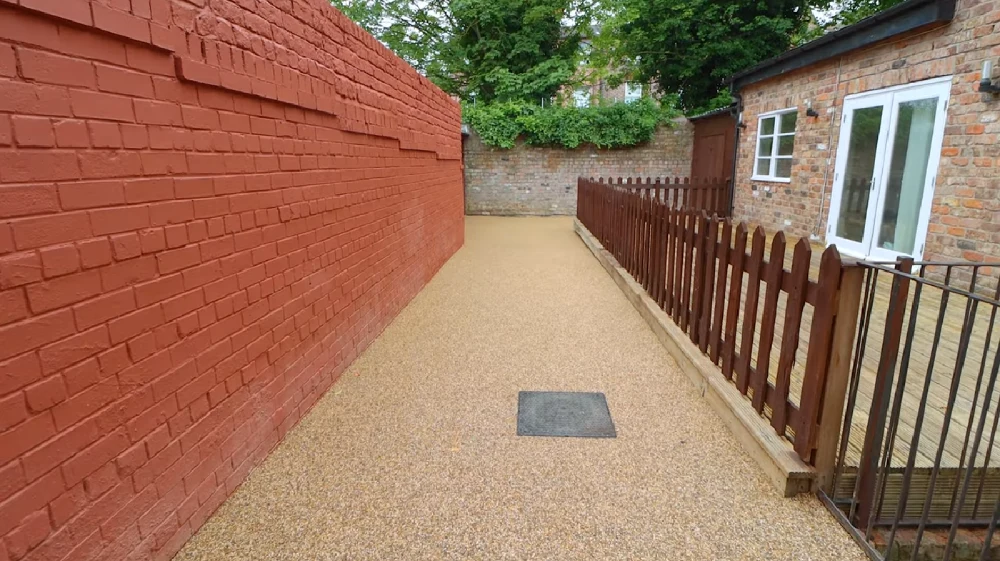
Choosing experienced contractors ensures optimal results and long-term performance for resin driveways in UK conditions.
Technical Expertise
Professional installers understand the specific requirements for UK climate conditions and soil types. Their experience ensures proper base preparation, material selection, and application techniques for local conditions.
Technical knowledge of drainage requirements, expansion considerations, and local building regulations ensures compliant, durable installations that perform reliably over time.
Quality Assurance
Professional installation typically includes warranties that protect homeowners against material or installation defects. This protection provides peace of mind and ensures long-term value from the investment.
Established contractors maintain relationships with quality material suppliers and stay current with industry best practices and technological improvements.
Professional Surfacing Standards
Adherence to industry standards ensures consistent quality and performance across all installations. Professional contractors follow established procedures that maximise surface durability and weed resistance.
Quality control measures during installation prevent common problems that could compromise long-term performance and require costly remediation work.
Cost Considerations and Value
Evaluating the total cost of ownership helps demonstrate the value proposition of weed-resistant resin systems.
Initial Investment Analysis
While resin driveways may require a higher initial investment compared to some alternatives, the reduced maintenance costs often provide superior long-term value. Elimination of regular weed control costs contributes significantly to lifetime savings.
The durability and longevity of properly installed resin systems often provide better cost per year of service compared to surfaces requiring frequent maintenance or replacement.
Maintenance Cost Comparison
Traditional surfaces require ongoing investment in weed control products, re-sealing, joint maintenance, and periodic repairs. These cumulative costs often exceed the premium paid for quality resin installation.
The minimal maintenance requirements of resin surfaces translate to both cost savings and reduced time investment for property owners.
Property Value Impact
Well-maintained, attractive driveways contribute positively to property values and kerb appeal. The consistently pristine appearance of weed-free resin surfaces provides lasting aesthetic and financial benefits.
The reputation for durability and low maintenance makes resin driveways an attractive feature for potential property purchasers.
Long-term Performance Expectations
Understanding realistic performance expectations helps homeowners make informed decisions about resin driveways.
Service Life Projections
Quality resin installations typically provide 15-20 years of excellent performance with minimal maintenance requirements. This longevity exceeds many alternative surfacing options and justifies the initial investment.
Performance degradation occurs gradually, allowing for planned maintenance or eventual replacement rather than emergency repairs, often required with other surface types.
Appearance Retention
The UV-stable properties of quality resins maintain colour and finish integrity throughout the service life. This characteristic ensures the surface continues to enhance property appearance year after year.
Minimal fading or surface degradation means the investment continues to provide aesthetic benefits throughout its extended service life.
Frequently Asked Questions
Will Weeds Ever Grow Through My Resin Driveway?
Properly installed resin driveways with quality materials and professional installation should not allow weeds to grow through from below. The sealed surface prevents penetration, while any surface seeds typically fail to establish due to inadequate growing conditions.
How Often Should I Clean My Resin Driveway to Prevent Weeds?
Weekly sweeping to remove organic debris and monthly washing with mild detergent typically maintains weed-free conditions. Post-resurfacing road maintenance for resin systems requires minimal effort compared to traditional surfaces, but consistent attention provides the best results.
Can I Use Standard Weed Killers on Resin Surfaces?
Most household weed killers are safe for use on resin surfaces, but always check manufacturer compatibility recommendations. The robust chemical resistance of quality polyurethane resins typically handles standard garden maintenance products without surface damage.
What Should I Do if Weeds Appear Around the Edges?
Edge weeds result from adjacent soil contact rather than surface failure. Regular trimming and application of appropriate weed control products to perimeter areas maintain neat boundaries without affecting the main surface integrity.
Install Resin Driveways for Long-Lasting, Weed-Free Beauty and Value
Resin driveways represent a superior solution for UK homeowners seeking attractive, durable, and virtually maintenance-free surfaces.
The combination of complete weed resistance, attractive appearance, and minimal upkeep requirements makes resin surfacing an excellent investment for residential properties.
The elimination of ongoing weed control costs, combined with the enhanced property value and consistent aesthetic appeal, provides exceptional long-term value.
When professionally installed using quality materials, resin systems deliver decades of reliable, weed-free performance that exceeds traditional alternatives in both function and appearance.

